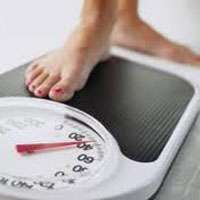How do lesbians' and gay women experience anorexia and bulimia?

(Medical Xpress) -- A psychology PhD student at UWE Bristol (University of the West of England) is researching lesbians' experiences of anorexia and bulimia and how these experiences may be similar to and different from those of heterosexual women.
The research involves in-depth interviews with self-identified lesbian women who are experiencing anorexia and/or bulimia.
Researcher Rebecca Jones said, “This new research will build on the pilot study I did at UWE Bristol as an undergraduate, which has just been published by the online journal Psychology and Sexuality.
“My motivations stem from having past experience of an eating disorder and self-identifying as a lesbian. When I started University I became interested in lesbians' eating disordered experiences from a research perspective which prompted me to explore the literature further in my undergraduate research project.”
According to Rebecca, there is now a considerable body of research exploring how our culture's norms and ideas about gender impact upon girls' and women's experiences of anorexia and bulimia and heterosexual girls' and women's experiences of anorexia and bulimia.
“However,” she says, “much less is known about lesbian experiences of anorexia and bulimia. The article I have just published explores some of the similarities and differences between lesbian and heterosexual women's experiences of anorexia and/or bulimia. Analysing interviews with a small number of self-identified lesbian women with a history of anorexia and/or bulimia indicates that many of the ways in which these women described their eating disorders were similar to those identified in research with girls and women assumed to be heterosexual – such as a search for identity, an exertion of self-control, and a pursuit of feminine beauty.
“But participants' actual or emerging lesbian identities were also shown to be integral to their accounts of developing, living with and recovering from anorexia and/or bulimia. In some cases they interpreted their anorexic/bulimic experiences as a response to stress about, or a way of avoiding their sexuality; as a space where they struggled with feelings about the possibility of being lesbian, or could 'find themselves'. Others talked about how social and romantic/sexual connectedness facilitated by coming out was integral to their recovery.
“Our analysis suggests that the processes of coming to recognise oneself as a lesbian and of coming out to others in a predominantly heterosexual society may have a profound impact upon how lesbians experience anorexia and bulimia.”
The new research project has been set up to better understand lesbian perspectives on eating disorders. Rebecca hopes that her research will make health care professionals aware of differences due to sexual orientation when treating women with eating disorders. The research team is looking for between 15 and 20 women to take part in the study.
More information: A critical exploration of lesbian perspectives on eating disorders, by Rebecca Jones and Helen Malson, is published in the Journal Psychology & Sexuality by Taylor and Francis and is available online at www.tandfonline.com/doi/abs/10 … 19419899.2011.603349















